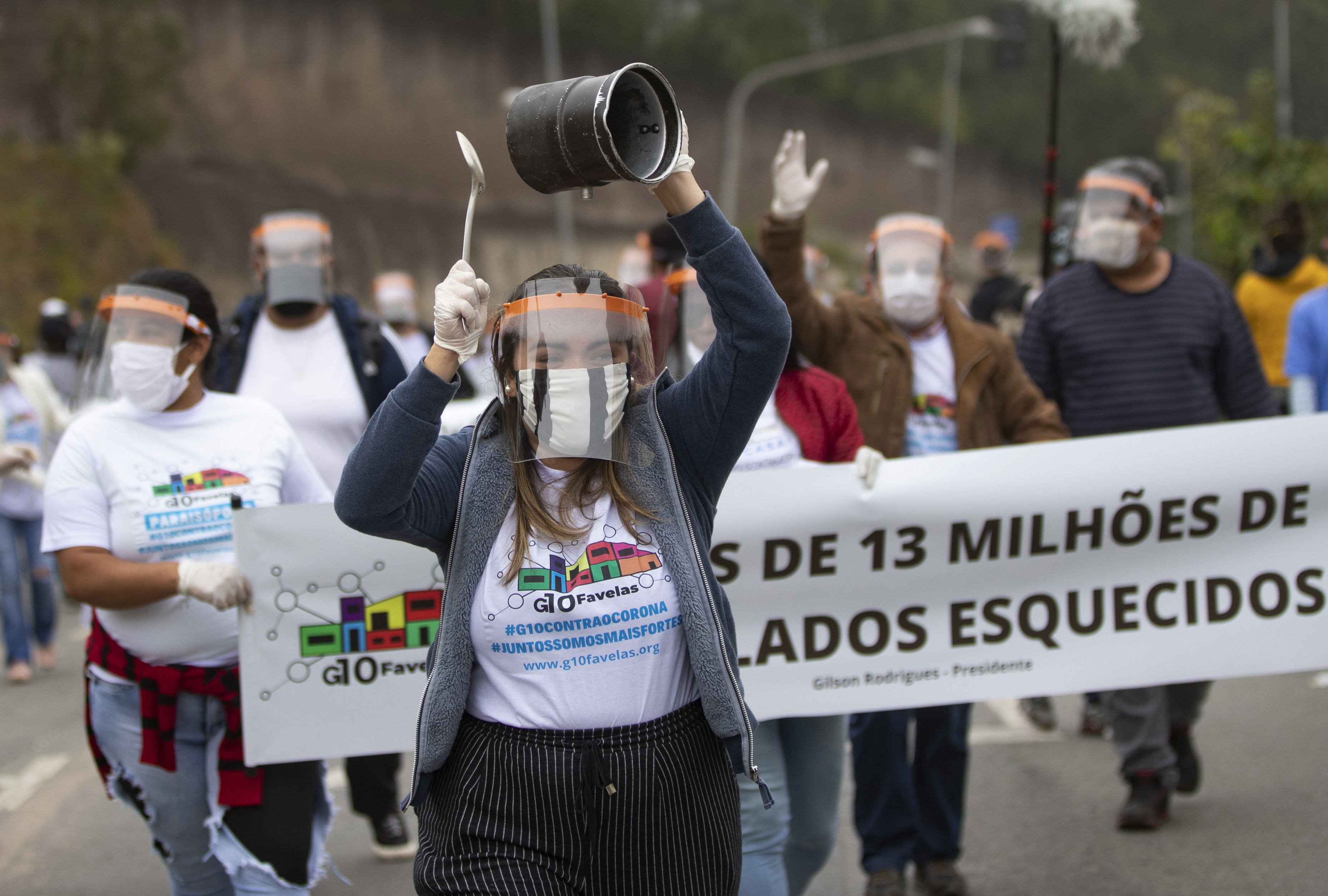Thronged banks. Packed subway cars. Buses full of President Jair Bolsonaro’s fervent supporters, heading to rallies that call on Brazilians to brush aside stay-at-home orders from mayors and governors and instead follow the president’s directive to get back to work.
Scenes like these are a reflection of Brazil’s contradictory and chaotic response to the coronavirus pandemic, which was on glaring display on Friday when the health minister resigned — just weeks after his predecessor was abruptly fired following clashes with Bolsonaro.
The national confusion has helped fuel the spread of the disease and contributed to making Brazil an emerging center of the pandemic, with a daily death rate second only to that of the US.
Public health experts say the disorderly approach has further saturated intensive care units and morgues and contributed to the deaths of scores of medical professionals as Latin America’s largest economy plunges into what may be its steepest recession in history.
The crisis facing the country stands in stark contrast to Brazil’s track record for innovative and nimble responses to health care challenges that made it a model in the developing world in decades past.
“Brazil’s could have been one of the best responses to this pandemic,” said Marcia Castro, a professor at Harvard University who is from Brazil and specialises in global health. “But right now everything is completely disorganized and no one is working toward joint solutions. This has a cost, and the cost is human lives.”
Brazil had months to study the errors and successes of the first countries struck by the virus. Its robust public health care system could have been deployed to conduct mass testing and trace the movements of newly infected patients.
Its failure to act early and aggressively is at odds with the country’s ingenious approaches to past medical crises, health experts said.
After a surge in HIV infections in the 1990s, Brazil offered free and universal treatment and pushed the pharmaceutical industry to lower costs. It threatened to disregard a Swiss drugmaker’s patent for an HIV drug in 2001, and did so in 2007, manufacturing its own generic version and greatly reducing the prevalence of HIV.
In 2013, Brazil vastly expanded access to preventive health care in poor areas by hiring thousands of foreign doctors, most of them Cuban. And to combat the Zika outbreak in 2014, Brazil created genetically modified mosquitoes that helped decrease the insect’s population, a tactic that will soon be deployed in Florida and Texas.
Brazil’s prior success resulted from investment in science and empowerment of scientists, said Tania Lago, a professor of medicine at Santa Casa University in São Paulo, who worked in the ministry of health in the 1990s.
“Now there’s been a rupture in the nation with its scientific community,” she said. “What saddens me is that we are and will continue to lose lives that could be saved.”










